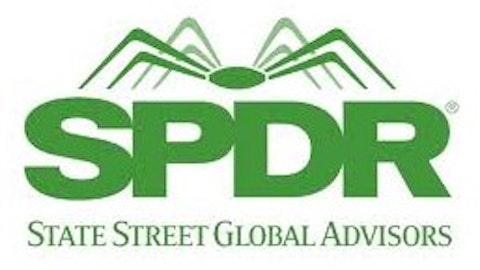This was a big week for all of the big banks. The Federal Reserve released results from part two of its annual, Dodd-Frank mandated stress tests, also known as the 2013 Comprehensive Capital Analysis and Review, or CCAR.
Judging by the 1.84% rise in Citigroup Inc. (NYSE:C)‘s share price over the last week, investors seem to have liked what the Fed had to say, and what the bank had to say in return — as shocking a statement as it was.

Part one of the CCAR revealed how well each of 18 banks performed in a simulated, severe economic downturn, and Citi did surprisingly well.
The bank’s actual Tier 1 common ratio (a measure of its capital reserves against risk-weighted assets) was a hardy 12.7%. In the throes of the simulated economic downturn, that common ratio went down to 8.3%. The Fed requires each bank’s stressed common ratio to be above 5%. Citi’s scores on both ends were impressive, and better than many of its peers.
JPMorgan Chase & Co. (NYSE:JPM) only managed an actual common ratio of 10.4% and a stressed minimum of 6.3%. Goldman Sachs Group, Inc. (NYSE:GS)‘ fabulous actual common ratio of 13.1% went entirely to pieces in the grinder of the simulated economic downturn, ending up all the way down at 5.8%.
And even the normally top-of-the-game Wells Fargo & Co (NYSE:WFC) only had an actual common ratio of 9.9% and a stressed minimum of 7%. Bank of America Corp (NYSE:BAC) — the other bank, in addition to Citi, still reeling from the aftershocks of the financial crisis — did surprisingly well, though, with an actual common ratio of 11.4% and a stressed minimum of 6.8%.
The acid test
But for investors, part two of the CCAR is what really mattered, because it would reveal whether or not each bank would get its proposed capital actions approved.
Again, with Citi performing so well on its stress test, most investors assumed Citi was going to get approval for whatever it asked for, and investors would get a dividend increase or share buybacks. This was a reasonable assumption, especially after the bank failed its test last year and investors got precisely none of those things.
But before the Fed could say yay or nay about any proposed capital actions, Citi pre-empted the central bank by announcing it wouldn’t seek any increase in its dividend or share repurchases. This came as a big surprise, and while no official explanation was given, there are a few reasonable theories going around.
Corbat shows his hand, and investors like what they see
As mentioned above, Citi came out of the financial crisis hit very hard and is still dealing with its toxic-mortgage hangover. Citi even has a “bad bank” that holds much this debt. For it to start showering shareholders with capital returns — the first year it performed so strongly on the CCAR — would not only look bad, but would likely be bad.
What good is a bank that pays a great dividend or buys back shares galore if its teetering on the edge of insolvency? I give Citi CEO Michael Corbat great credit for this daring move. There was no guarantee that shareholders wouldn’t be very angry, and punish Corbat by sending the bank’s share price plummeting.
The fact that they didn’t, and that they instead sent the share price significantly up, is a testament to their patience and understanding of Citi’s real needs as much as Corbat’s.
I’m not currently a shareholder in Citi. Since the financial crisis, I thought the superbank — along with B of A — was just too much of a black hole to risk any of my own money in. And I also haven’t known quite what to make out of Corbat. He certainly looks every inch the conservative banker — even more so than JPMorgan CEO Jamie Dimon — but I didn’t feel like he’d shown his hand yet.
With this move to sit still for a year — to further strengthen and solidify gains the bank has made since the crash — I think Corbat has shown his hand, and it’s a strong one. Judging by this week’s share-price performance, I’d say most investors agree.
The article Why Citigroup Was Up This Week originally appeared on Fool.com and is written by John Grgurich.
Fool contributor John Grgurich owns shares of Goldman Sachs and JPMorgan Chase. Follow John’s dispatches from the bleeding heart of capitalism on Twitter @TMFGrgurich. The Motley Fool recommends Goldman Sachs and Wells Fargo. The Motley Fool owns shares of Bank of America, Citigroup, JPMorgan Chase, and Wells Fargo.
Copyright © 1995 – 2013 The Motley Fool, LLC. All rights reserved. The Motley Fool has a disclosure policy.



